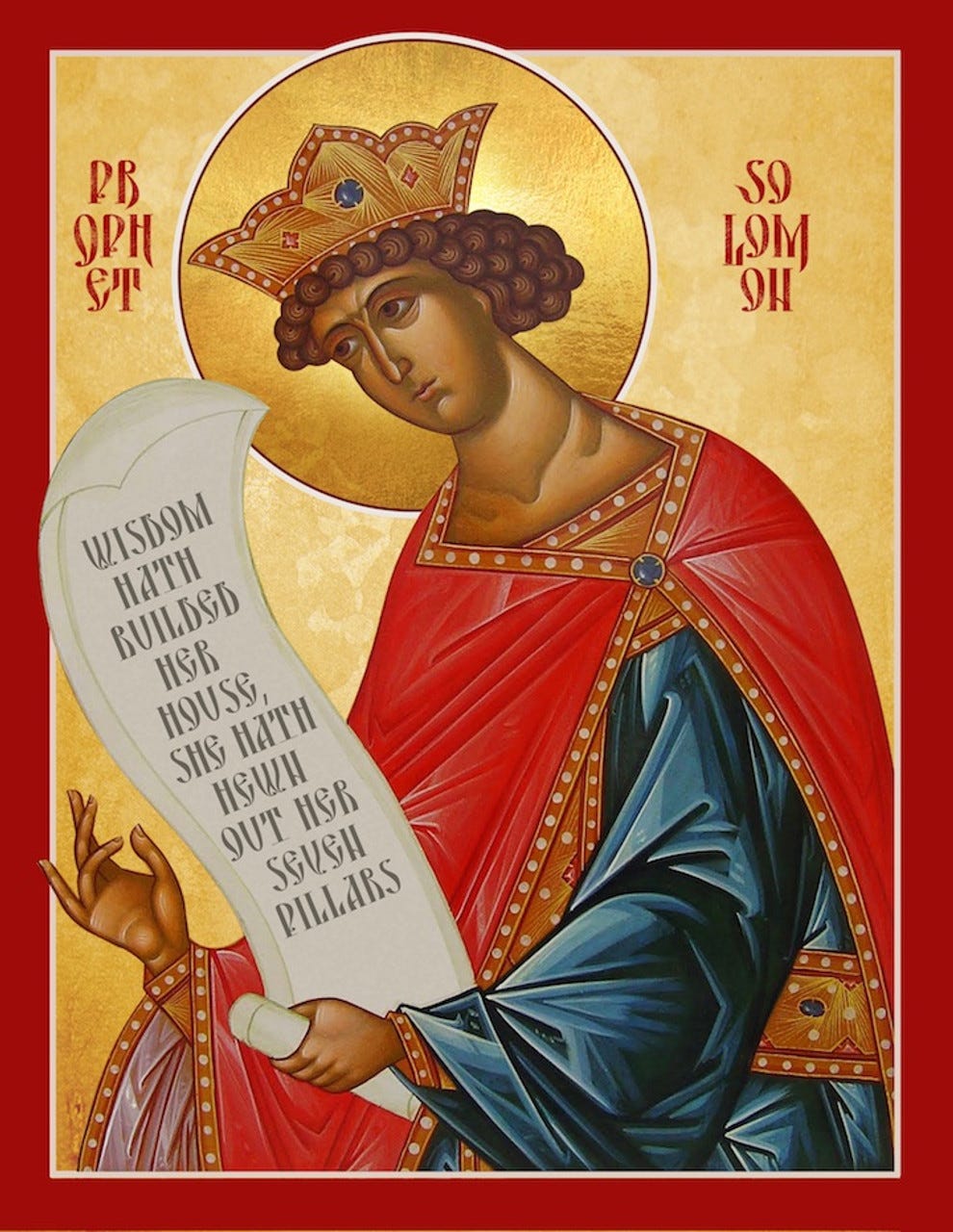We are currently deep in the marshes with King Alfred. After Guthram’s surprise attack during Christmas, he has almost lost his Kingdom. With only a few loyal men, he hides.
Most historians gloss over this part, though some do dare to mention the burning of the cakes. Later Medieval writers, commenting on this period of the king’s life, describe the texts which inspired Alfred at this time. One of this is found in the Wisdom of Solomon, a book written in around 50 BC.
Wisdom of Solomon 6 v 6
The mighty shall be mightily tormented.
This book wasn’t authored by Solomon, but is pseudepigraphical. This is a literary device which attributes a text to a famous figure of history. It can add weight to the document or even help the reader to understand the purpose of the text. So in this case, by saying it was the wisdom of King Solomon, we understand this is part of the wisdom literature.
Some Protestants might find it strange that the Wisdom of Solomon is included in the Anglo-Saxon canon, but the Old English church was deeply connected to Rome. With the king spending two years in the city, when he was a young child.
The above verse supposedly helped King Alfred during his time of hiding. It seems a strange idea to think he’d take comfort from this. But the context is key.
The author is telling us that God reserves his strongest judgements for leaders. Those who take the power God gave them, and use them to oppresses the people. Those who did not keep God’s laws or judge correctly. These will all receive severe judgment.
King Alfred saw the failure of Wessex as a judgement against his kingship. He clearly felt this was his fault and he needed to repent and change his ways.
In later verses we read,
Wisdom of Solomon 6 v 9-11
Therefore to you, O tyrants, my words are directed. That you may learn wisdom and not fall away.
For they will be made holy who keep holy things piously, and those who are taught holy things will find a defense. Therefore long for my words. Yearn for them, and you will be instructed.
From this we can see Alfred’s intention was lean into God’s wisdom, and look to bring Wessex back onto stronger Christian foundations.
It was recorded in later writings that Alfred blamed himself and his forebears for not teaching God’s Word to the people of Wessex. And he believed the success of the Great Heathen Army was directly linked to this failure.
He understood that through this God was teaching him and his people a lesson. By forsaking God, it opened the door to unnecessary sufferings and far worse outcomes. The key to Alfred’s long term plan was to place education at the heart of the nation. But before he could enact this, he first had to win against Guthram.





I must confess I've been thinking about Aelfred's story more and more lately, as I'm cast adrift in life on an emotional and spiritual level.
Any advice you might give?